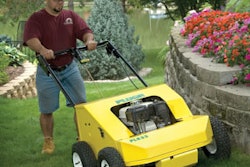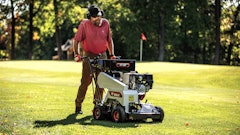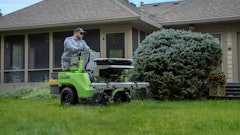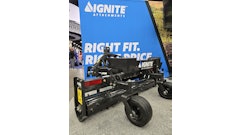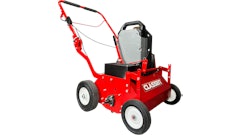
- Agree on what sustainability means to you and your operation. Share your vision and get buy-in from employees. Embrace their ideas as well.
- Take steps to conserve energy usage in offices and shops. Turn off unused equipment and install programmable thermostats and energy-efficient lighting.
- Implement employee health awareness and safety programs.
- Start a recycling program in offices and shops by recycling paper, plastic and metals. Expanded programs can include wooden pallets, building materials and scrap metal.
- Minimize the use of disposable items or items that cannot be recycled. Doing so reduces waste production and costs—a key tenant of sustainability.
- Manage service vehicle routing more efficiently to conserve fuel and reduce costs. Consider installing GPS and train employees to reduce idling.
- Purchase fuel-efficient vehicles and maintenance equipment. Consider biofuels as an option.
- When purchasing products, consider their lifecycle. Cheaper equipment and products rarely offer the best value for the money and have to be repaired or replaced more often. Seek durability.
- Buy local whenever possible to cut down on the use of fuel needed to move products over long distances.
- Implement soil testing to determine exactly what nutrients landscape plants need.
As cited in the 2009 PLANET Crystal Ball Report







